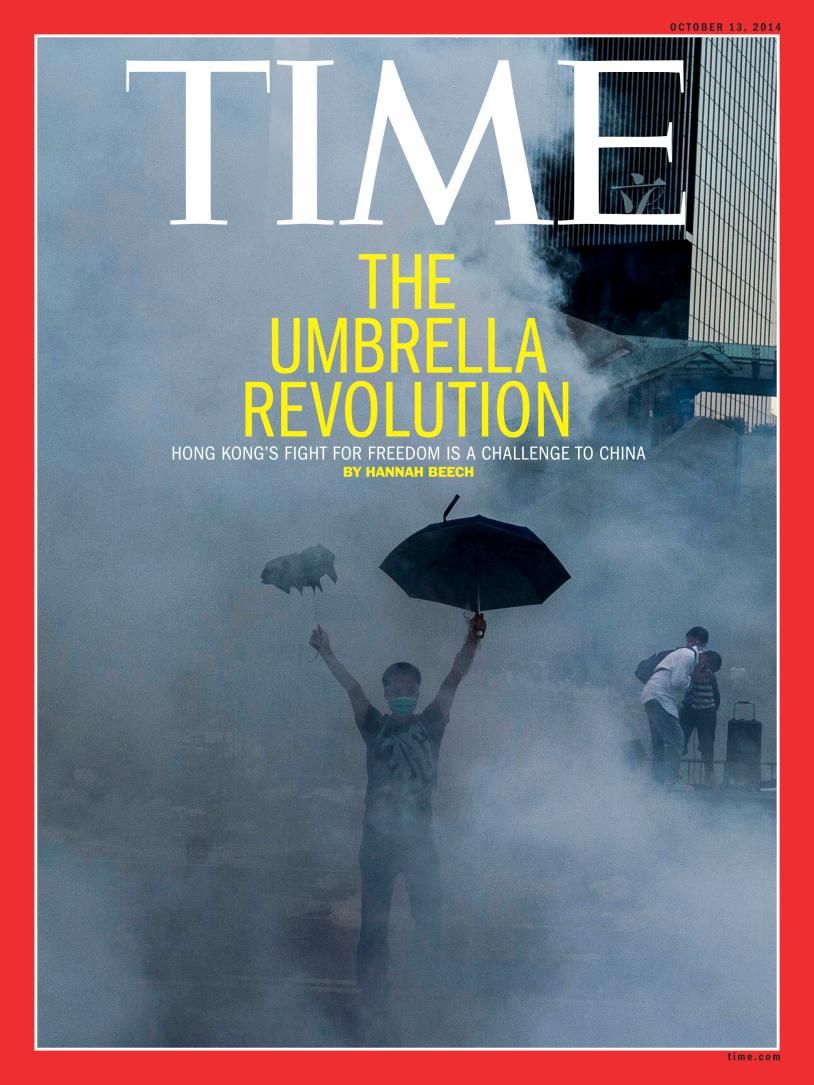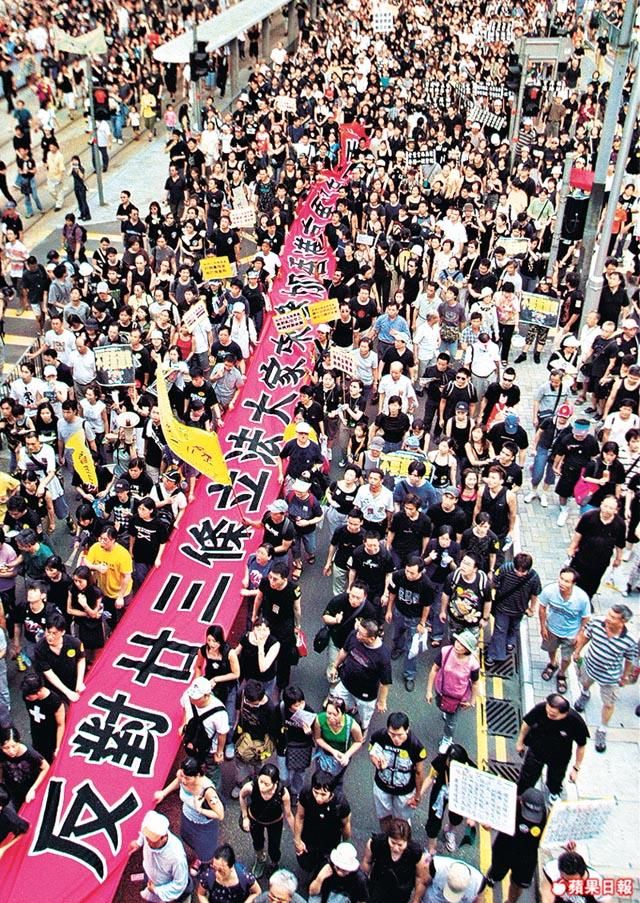【Director's Analysis】Hui Anhua──Seeing Her Hong Kong Consciousness and Complexity from "When Will the Moon Come?"
Hui Anhua is one of the most representative directors in the new wave of Hong Kong films. Most of her works depict the life of Hong Kong people and have a strong local culture in Hong Kong. She also often implies Hong Kong consciousness or satire in her films. The social situation in Hong Kong. For example, "Day and Night in Tin Shui Wai" and "Night and Fog in Tin Shui Wai" analyze the real state of Hong Kong's grassroots society from different perspectives: problems arising from Chinese and Hong Kong families, elderly people living alone, etc. In the three films, "When Will the Moon Be There", "Departing to the Furious Sea" and "Jade Guanyin", she reflected her views on the relationship between Hong Kong and China.
- Hong Kong Consciousness in "When Will the Bright Moon"
"When Will the Moon Come" begins by narrating memories from the perspective of a bystander, pulling the audience out of the plot. The film is set against the backdrop of China's resistance to Japan, and the story depicts the protagonists working hard for China to counterattack Japan and defend their homeland. Some people think this is the main theme movie, but I think director Xu Anhua buried Hong Kong consciousness in this work. It is true that the main characters in this film are Chinese actors playing Hong Kong people, but it is understandable in order to cooperate with the management and the mainland market. It would be too superficial to judge that "When the Moon Will Come" is the main theme movie just from this. Hui Anhua uses several scenes to express her Hong Kong consciousness in "When is the Moon".
- (1) The spirit of the Umbrella Revolution

The umbrella symbol appears twice in the movie. When a Hong Kong person mentions an umbrella, it often has another deep meaning, which is to insinuate the umbrella revolution that happened in 2014. In 2014, Hong Kong's first large-scale social movement took place, with more than 1.2 million candidates. The Hong Kong Federation of Post-Secondary Students (Federation) and Scholarism launched the Occupy Central Action, which began on September 26 and ended on December 15 of the same year. The area of occupation is mainly in the economic center of Hong Kong, such as Admiralty, Central, Wan Chai, Causeway Bay, Mong Kok and Tsim Sha Tsui. In this protest, Hong Kong people mainly hope that the Standing Committee of the National People's Congress of China will withdraw the 2017 Chief Executive Election As well as the 2016 Legislative Council election framework and candidate nomination plan, fighting for the right to nominate citizens for the election of the Chief Executive, etc. If the Standing Committee has not withdrawn, Hong Kong people will not be able to truly recommend and elect their ideal Chief Executive, because candidates must be confirmed by the Standing Committee before they can become candidates for Chief Executive. The Umbrella Revolution is a civil disobedience movement for true universal suffrage, and it is also the cry of Hong Kong people. In the Umbrella Revolution, the people of Hong Kong have shown their side of fighting against the Hong Kong government regardless of their own lives. Hong Kong people are working hard for true universal suffrage instead of the CCP's hypocritical universal suffrage. The Umbrella Revolution was named after Hong Kong citizens used umbrellas to resist the police’s tear gas and pepper spray. The most impressive thing is that the whole people sang BEYOND’s “Broad Sea and Sky” in front of the police wall, symbolizing their desire to have no Restricted, only belongs to the vast sea and sky of Hong Kong people.
Umbrellas appeared twice in the movie: once as a secret signal to lead Chinese cultural people to escape from Japanese rule, Mr. Mao Dun and others followed the people holding umbrellas to cross the border. The second time was when the mother gave the umbrella to her daughter who became an anti-Japanese fighter. The umbrella of the former has the meaning of leadership, revolution, rebirth, and escape from power. This means that Xu Anhua hopes that Hong Kong can resist in the face of adversity, escape the shackles of power, and be reborn. The latter has the meaning of passing on from the old generation to the new generation. It is reminiscent of the movie where Aunt Fang said to her daughter, "In the future, peace will depend on you young people." , relying on the next generation's desire for freedom to lead Hong Kong back to its own freedom.
- (2) Hong Kong’s sense of belonging
The word "bright moon" often symbolizes reunion, and this is also expressed in the movie. The Japanese traitor played by Wallace Huo used the bright moon to sigh when Hong Kong people can be reunited in "Seven Steps into a Poem of Death". He said, "When is the bright moon, and the moon is like a hook, who will meet after dusk; when is the bright moon, the beginning of the moon, how can we solve a period of sadness; when is the bright moon, when is the time for reunion?" Reunion is for Hong Kong people. It is also a very important concept. Hong Kong has experienced different colonizers in the past. For Hong Kong people, they were abandoned by China and separated from China by the colonizers, and the wandering life of Hong Kong people began from this. They have no sense of belonging to the colony, nor to their original motherland, so their feelings fall on Hong Kong, the land where the colonists are also enslaved. In the film, Xu Anhua does not emphasize the Communist Party, but emphasizes the difference between "we" and traitors, which reflects that Xu Anhua deliberately removed the color of Chinese national ideology, and instead focused on family unity: working hard for his own people, even at the cost of his life the spirit of. This spirit is what Hong Kong people can best embody in the "Umbrella Revolution" and the "Reverse Extradition Movement".
- (3) The code word of the movie name
Xu Anhua even put her ideas into the Chinese and English names of the film. The Chinese title of "When Will the Moon Come" is a question about reunion and when Hong Kong will no longer be colonized; the English title of "Our time will come" is about the attitude of Hong Kong's freedom from doubt to affirmation. Led by the revolutionary spirit of , so she thinks our time will come. On the other hand, the time has come for the reunion of Hong Kong people by using ancient and modern interludes in the plot. They rely on their own strength to get peace and freedom from the troubled times. This hints at the Hong Kong consciousness that Hong Kong people are a family of their own, because for Xu Anhua, reunion is the place where Hong Kong people find their own belonging in the movie, get peace on this land, and everyone can live and work in peace and contentment. In the film, the return to China is not emphasized, but instead the picture is placed on the ordinary life of Hong Kong people after the return. It can be seen that she believes that the peace of Hong Kong did not come with China, but that the Hong Kong people fought hard for the past wars. .
- Hong Kong Consciousness in "Jade Goddess of Mercy"

"Jade Goddess of Mercy" was released in 2003, and 2002 was five years after the handover. In 2002, the cultural and political conflicts between China and Hong Kong began to appear. For example, Falun Gong in China resisted China's suppression in Hong Kong, and some groups in Hong Kong came forward to counter and control these Falun Gong and support China. Politically, Hong Kong is forming a government structure, and China is constantly suppressing the structure of the Hong Kong government, such as proposing Article 23 legislation. One of the 23 pieces of legislation is that the Hong Kong Special Administrative Region shall legislate to prohibit any act of treason, secession, sedition, subversion of the Central People's Government and theft of state secrets, and prohibit foreign political organizations or groups from conducting political activities in the Hong Kong Special Administrative Region. , prohibiting political organizations or groups in the Hong Kong Special Administrative Region from establishing links with foreign political organizations or groups. This article greatly limits Hong Kong's political autonomy. "Jade Goddess of Mercy" was produced under the background full of contradictions between China and Hong Kong.
The story of "Jade Goddess of Mercy" revolves around the heroine An Xin and three men: Mao Jie, Tie Jun and Yang Rui. Anxin, a female drug policewoman in Nande, a small border town in Yunnan, has a fiancé named Tie Jun. When she was about to get married, she met Mao Jie and fell in love with him. However, Anxin knew that this was unfair to Tie Jun, so she broke up with Mao Jie and decided to marry Tie Jun. Mao Jie was subsequently arrested for drug trafficking, and his parents died as a result. Mao Jie felt angry and went to Anxin to settle accounts, but Tiejun died trying to save Anxin. After Tie Jun died, An Xin escaped with his son and met Yang Rui. Yang Rui has a heart for An Xin, and An Xin is also moved by his pursuit. But after many twists and turns, the two were not together. At this time, Mao Jie and his brother learned of An Xin's whereabouts and successfully kidnapped An Xin's son, while Yang Rui was injured to save An Xin. In the end, Mao Jie killed him and An Xin's son without knowing it, An Xin disappeared, and Yang Rui searched for An Xin all his life.
Hong Kong is like the peace of mind in "Jade Goddess of Mercy". Hong Kong has experienced three colonial periods: Japan, Britain and China. The feeling of being severed from home with peace of mind is the same as that of Hong Kong people searching for their own place of return. Different characters in the movie mentioned the image of Jade Guanyin many times, but An Xin has the appearance of Jade Guanyin, but the inside is very evil. In this way, she has the same seductive charm as the Communist Party. Her power affects people's life and death, because those who like her will go to death. When Anxin died, the people who were close to death from serious injuries escaped. Does this prove that Anxin, like the Communist Party, has the influence to control people's hearts and even their lives?
- (1) Comparison between "When Will the Bright Moon" and "Jade Guanyin"
Xu Anhua's negative portrayal of the Chinese Communist Party in "Jade Goddess of Mercy" is more direct and darker than "When the Moon Will Come". In "Jade Guanyin", Xu Anhua directly alluded to the shortcomings of the Communist Party, pointing out the lethal side of the Communist Party. It is not difficult to see that Xu Anhua was dissatisfied with China's strong desire to control Hong Kong at that time. On the contrary, she did not express her distaste for the Communist Party in "When is the Moon?" This may be because in the face of the fact that China has become powerful, she has accepted the reality and placed hope of making Hong Kong better for the next generation. She emphasized the importance of collective resistance in "When is the Moon?", which may be the hope that Hong Kong people can unite after witnessing the Umbrella Revolution. Although the struggle ended in failure, the spirit of Hong Kong people's struggle for democracy remains forever.
- Hong Kong Consciousness in "To the Sea of Wrath"

Released in 1982, "To the Wrath" was a film made after the signing of the Sino-British Joint Declaration in 1980. Through this film, Hui Anhua expressed her panic about the return of Hong Kong to China, while alluding to and satirizing the illusion of returning to China to "build a beautiful home together". The story of "Departing to the Furious Sea" tells the story of a Japanese journalist Akutagawa Shiomi during an interview in Vietnam. Under the arrangement of the Vietnamese government, he saw that the lives of Vietnamese residents were very happy. However, after getting to know Nguyen Qinniang, a local resident, he found that the life of Vietnamese residents is not as good as it seems. So, he decided to witness the happiness of exposing this surface as a reporter, and was determined to save this place. At this time, the Vietnamese government discovered that Akutagawa Shiomi knew the truth and decided to kill him.
The story of "Fighting to the Sea of Wrath" uses Japanese reporters to expose the real side of the government to compare the false side of the CCP government. The so-called good life is all a show. The reporter was favored by the government in the film, but in the end, when helping the heroine, he was accidentally burned to death under the government's pursuit. When journalists are treated with respect by those in power, they are like Hong Kong, which has not returned to China. China proposed one country, two systems, and made a promise that will remain unchanged for 50 years. Hong Kong's future looks beautiful and free. But at the end of the movie, the reporter died unexpectedly while being chased by officers and soldiers. This reflects Xu Anhua's fear for the future of Hong Kong. She expressed her concern about the return of Hong Kong to China with a Greek tragedy. She was afraid that Hong Kong people who exposed China's ugly side would one day be oppressed, chased, and brought disaster. , and now it seems that this conjecture is very correct.
- Xu Anhua's ideological change as a director
In fact, her concerns about the future of Hong Kong were also confirmed in "When Will the Moon Come". After the umbrella is over, all Hong Kong people know that the so-called "one country, two systems" and 50 years of unchanged is a lie. She did not have the dissatisfaction and sharpness towards the Communist Party in "Departure to the Furious Sea" in "When is the Moon?". Her expression was more like accepting the reality of Hong Kong's return to China. Her distaste for the CCP is suggestive, and she dares not express her dissatisfaction any more, because if she has any more negative criticism of the CCP, she may be blacklisted by China. So she decided to keep silent, otherwise she would disappear like the manager of the Causeway Bay Bookstore. (Causeway Bay Bookstore is famous for selling not only general books, but also political books that are banned in China. The bookstore's shareholders and clerks have disappeared in other places, China and Hong Kong. They are threatened for expressing and exposing China's hypocrisy.) Therefore, Xu Anhua Instead of yelling at the CCP’s lethal control, keep silent. The biggest change in her ideology is the difference in the ending of the film. Among the three films, the first two films, "Fleeing to the Furious Sea" and "Jade Guanyin", both ended with tragedy, but in "When Will the Moon Come" is no longer a tragedy, but a hope. But in Hong Kong now, can young people really get real freedom in exchange for their hard work? Or in exchange for endless darkness?
Friends who want to know the update of the article in real time can follow my IG: momo_no.name to learn more~
Like my work? Don't forget to support and clap, let me know that you are with me on the road of creation. Keep this enthusiasm together!

- Author
- More